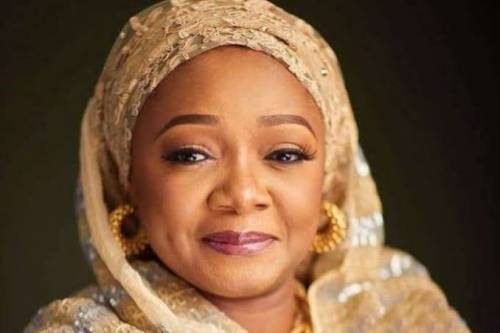Imaan Suleiman-Ibrahim’s appointment as the new Minister of Women Affairs has garnered widespread attention, particularly from women’s groups. Her assumption of the role of Women Affairs Minister marks a significant step in Nigeria’s ongoing efforts to uplift women and address gender disparities. With a clear mandate and high expectations, she has the opportunity to drive meaningful change that will empower women and improve the nation’s socio-economic fabric. As various women’s groups have emphasized, the hope is that her leadership will bring about a renewed focus on the rights and welfare of Nigerian women.
With a robust background in both the public and private sectors, Suleiman-Ibrahim brings a wealth of experience and a record of achievements that have prepared her for this pivotal role in promoting gender equity and women’s development in Nigeria.
A Proven Track Record of Leadership
Imaan Suleiman-Ibrahim holds a Bachelor’s degree in Sociology from the University of Abuja. She further distinguished herself academically by earning two Master’s degrees—one in Business Administration and another in Management from Webster University, St. Louis (London campus)—by the age of 21. Her continuous pursuit of knowledge is evident as she is currently completing a doctoral program in Security and Strategic Studies at the Nigeria Defence Academy
Her career reflects a blend of technical, administrative, and executive experience. She has held significant roles in public service, including serving as the Director General of the National Agency for the Prohibition of Trafficking in Persons (NAPTIP), where she led initiatives to curb human trafficking and support victims. As the Federal Commissioner for the National Commission for Refugees, Migrants, and Internally Displaced Persons (NCFRMI), she initiated “Project 5s,” aimed at addressing challenges faced by displaced persons
Why She is Fit for the Role
Imaan Suleiman-Ibrahim’s expertise spans key areas such as human capital development, conflict management, and national security. Her experience at NAPTIP and NCFRMI has equipped her with the skills needed to handle issues of gender-based violence, economic empowerment, and social protection, all of which are critical to her new portfolio. Her leadership in various capacities has demonstrated her ability to strategize, implement, and monitor programs that address societal challenges, positioning her well to advocate for women’s rights and inclusion.
Expectations from Nigerians
Nigerians expect Suleiman-Ibrahim to leverage her position to advance the welfare of women across the country. Women’s groups have expressed confidence that she will champion gender-friendly policies that empower women politically, economically, and socially. Key expectations include:
- Strengthening Policies for Women’s Empowerment: By promoting initiatives that encourage women’s participation in leadership and economic activities, she can foster inclusive governance.
- Combating Gender-Based Violence: There is a need for stronger enforcement of laws against domestic abuse, sexual harassment, and harmful traditional practices like female genital mutilation.
- Advocating for Girls’ Education: Initiatives that keep girls in school and provide them with the skills needed to thrive are essential for sustainable development
Mistakes She Should Avoid
As Suleiman-Ibrahim assumes office, there are a few pitfalls she should be cautious of:
- Neglecting Stakeholder Engagement: Collaboration with NGOs, community organizations, and international partners is vital to ensure comprehensive and sustainable solutions.
- Policy Gaps and Delays: Quick, strategic action on policy implementation is needed to address ongoing issues, from child marriage to economic disparities faced by women.
- Lack of Transparency and Accountability: Ensuring that programs are effectively monitored and resources are allocated transparently will be crucial for maintaining public trust
A New Dawn for Women’s Development
Imaan Suleiman-Ibrahim’s appointment as the Minister of Women Affairs offers a promising outlook for gender development in Nigeria. Her vast experience, strategic mindset, and previous accomplishments make her well-suited to address the challenges that Nigerian women face. If she leverages her skills to promote economic empowerment, enforce protective legislation, and build strong partnerships, she can make significant strides toward a more inclusive society.
As various women’s organizations converge at the Ministry to welcome her, the message is clear: there is optimism and hope that Suleiman-Ibrahim will champion the rights of women and girls, leading Nigeria to a future where gender equality is not just an aspiration but a reality.


